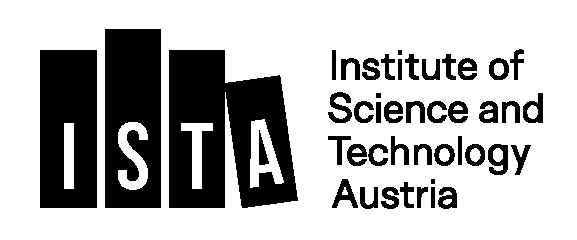Digital Twin Design Methodology for Automated Manufacturing Systems
| ABG-134428 | Master internship | 6 months | 600 |
| 2025-11-18 |
- Engineering sciences
Employer organisation
Website :
The DISP (Decision and Information Systems for Production system, UR4570) laboratory brings together researchers and teacher-researchers from the University of Lyon, with dual expertise in Industrial Engineering and Business Information Systems. In response to the scientific challenges posed by changes in the socio-economic world, it conducts research into the design and deployment of decision-support methods and information systems to improve the performance, agility and resilience of goods and services production systems and global supply chains. Its dual expertise, drawing on skills in Modeling, Operations Research, Simulation, Software Engineering, Artificial Intelligence, Planning, Scheduling and Decision Support, enables it to consider these complex systems in their technical, structural, organizational and human dimensions simultaneously. Its members are spread across 4 institutions of the University of Lyon: INSA Lyon, Université Lumière Lyon 2 and Université Claude Bernard Lyon 1, as the parent institutions, and Université Jean Monnet de Saint Etienne as a partner institution.
Description
CONTEXT
A Digital Twin (DT) is rigorously defined as a cyber-representation of a physical asset, process, or system, exhibiting dynamic isomorphism through continuous, bidirectional data exchange. Beyond static modelling, a DT aims to maintain behavioral, structural, and semantic congruence with its physical counterpart, enabling advanced computational analyses, prediction, and decision support. Initially deployed in high-reliability and safety-critical domains (aeronautics, space, naval, nuclear, automotive), the Digital Twin has become a cornerstone of ongoing research in cyber-physical systems, model-driven engineering, and data-centric industrial transformation.
In the context of Industry 5.0—characterized by human-centricity, resilience-by-design, and sustainable production—the scientific scope of DTs extends across multiple layers: product performance, multi-scale material behaviour, production and supply-chain processes, industrial equipment monitoring, and human–machine collaboration. The proposed research internship is aligned with these developments and focuses on Cyber-Physical Production Systems (CPPS), with particular emphasis on automated production machinery engineered for the fabrication of specific product families. These systems embody tight couplings between physical processes, embedded software, control systems, sensing infrastructures, and human-in-the-loop mechanisms.
A Digital Twin relies on the integration of three interdependent scientific components:
- Multimodal data streams (historical, real-time, and event-based), capturing system variability and uncertainty,
- Computational and hybrid models (physics-based, data-driven, reduced-order), capable of continuous recalibration via data assimilation,
- Decision-support services (diagnosis, prognosis, prescriptive analytics), enabling proactive and model-informed control of the physical system.
The core research challenge lies in ensuring long-term co-evolution and epistemic alignment between the physical system and its digital counterpart throughout the lifecycle—including commissioning, operation, reconfiguration, maintenance, skill evolution, and product variant introduction. This challenge is particularly salient in CPPS, where complexity arises from multi-domain heterogeneity and hybrid (discrete–continuous) dynamics typical of automated manufacturing environments.
Unlike in large-scale critical systems (aircraft, power plants), where DT development is supported by mature systems engineering practices and PLM infrastructures, automated production machinery—frequently developed by SMEs—faces fragmented development workflows, discipline-based silos, and limited model formalization. These constraints hinder traceability, interoperability, and the rigorous software integration needed for high-fidelity DT deployment.
PROPOSED APPROACH AND INTERNSHIP CHALLENGES
The objective of the internship is to contribute to the definition of a lifecycle-oriented methodological framework for Digital Twin development, tightly coupled with that of the physical system, from design to end-of-life. In the early phases, the approach will involve the co-engineering of the CPPS and its DT using a system engineering methodology, promoting model traceability, knowledge capitalization, and interdisciplinary consistency.
This methodology must account for the specific constraints of automated production machinery: one-of-a-kind equipment, absence of physical prototyping phases, tight industrial deadlines and budgets, and a wide range of technical stakeholders. In the long term, the deployment of such equipment within a production line should systematically include its corresponding Digital Twin, integrated into the global line-level Digital Twin.
The internship will explore this design space through three complementary research axes:
- Development of an integrated modelling methodology, including functional, structural, and input/output specifications.
- Exploration of modelling languages and execution semantics to support simulation and operational deployment of executable models.
- Definition of a generic, adaptable approach, applicable to a variety of industrial process contexts.
EXPECTED DELIVERABLES
The expected outcomes of this research internship are:
- A structured academic and industrial literature review on modelling methods for automated production systems and systemic modelling approaches.
- A mapping and integration of design data (multiphysics modelling: mechanical, electrical, pneumatic, and software layers) to support Digital Twin instantiation.
- The development and documentation of a methodology and execution framework for the Digital Twin, ensuring a reproducible, scalable, and complexity-aware process for use in constrained industrial contexts.
Profile
M2 Industrial Engineering
Digital twin, Manufacturing system, life cycle, MBSE, Industrial automation, Discret Event System
Starting date
Vous avez déjà un compte ?
Nouvel utilisateur ?
Get ABG’s monthly newsletters including news, job offers, grants & fellowships and a selection of relevant events…
Discover our members
 Nokia Bell Labs France
Nokia Bell Labs France  ADEME
ADEME  Aérocentre, Pôle d'excellence régional
Aérocentre, Pôle d'excellence régional  MabDesign
MabDesign  CASDEN
CASDEN  ANRT
ANRT  Tecknowmetrix
Tecknowmetrix  PhDOOC
PhDOOC  Laboratoire National de Métrologie et d'Essais - LNE
Laboratoire National de Métrologie et d'Essais - LNE  TotalEnergies
TotalEnergies  ASNR - Autorité de sûreté nucléaire et de radioprotection - Siège
ASNR - Autorité de sûreté nucléaire et de radioprotection - Siège  SUEZ
SUEZ  Groupe AFNOR - Association française de normalisation
Groupe AFNOR - Association française de normalisation  Ifremer
Ifremer  Généthon
Généthon  ONERA - The French Aerospace Lab
ONERA - The French Aerospace Lab  CESI
CESI  Institut Sup'biotech de Paris
Institut Sup'biotech de Paris  MabDesign
MabDesign




